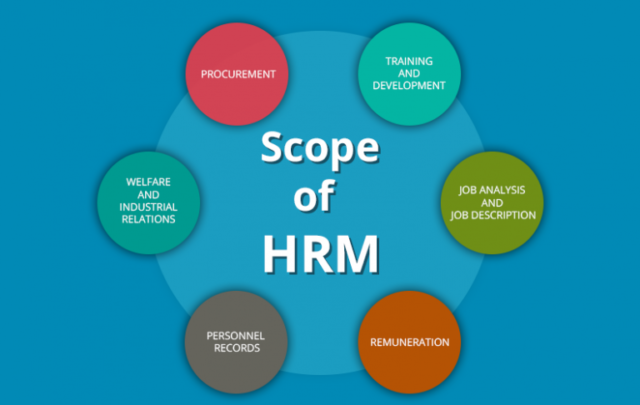The scope of HRM is indeed extensive. All major activities in the working life of an employee, from the time of his or her entry into an industry until he or she leaves, come under the purview of HRM, Specifically, the activities included are – HR planning, orientation and placement, job analysis and design, recruitment and selection, training and development, employee and executive remuneration, performance appraisal and job evaluation, motivation and communication, safety and health, welfare, industrial relations (IR) and the like.
They can be summarized as follows:
1) Procurement :
It includes recruitment and selection of right of personnel to occupy the various posts in the organization. It includes:
i) Determination of manpower requirements
ii) Job analysis
iii) Nature and scope of recruitment
iv) Employee selection and
v) Placement of employees
2) Training and Development :
Training & development is a must to prepare the worker made to involve the employees in the actual management situations. Employees’ participation in committees and board meetings may also contribute toward their development.
3) Job Analysis and Job Description:
Job analysis & job description involves the studies of job requirements of the Organization and assignment of well defined functions to jobs so that suitable employees may be hired. It also forms the basis of wage determination.
4) Remuneration:
Provision of ample remuneration for the work done by an employee involves job analysis and job evaluation. It includes determination wage rates, incentives systems of wage payment, meritrating and performance appraisal.
5) Personnel Records:
The activity of personnel records includes collection bio-data of all employees pertaining to their work e.g., aptitude payment records, training job performance.
6) Welfare and Industrial Relations:
Welfare and industrial relations includes health and safety programme, sanitary facilities, recreational facilities, group insurance employee associations etc.
